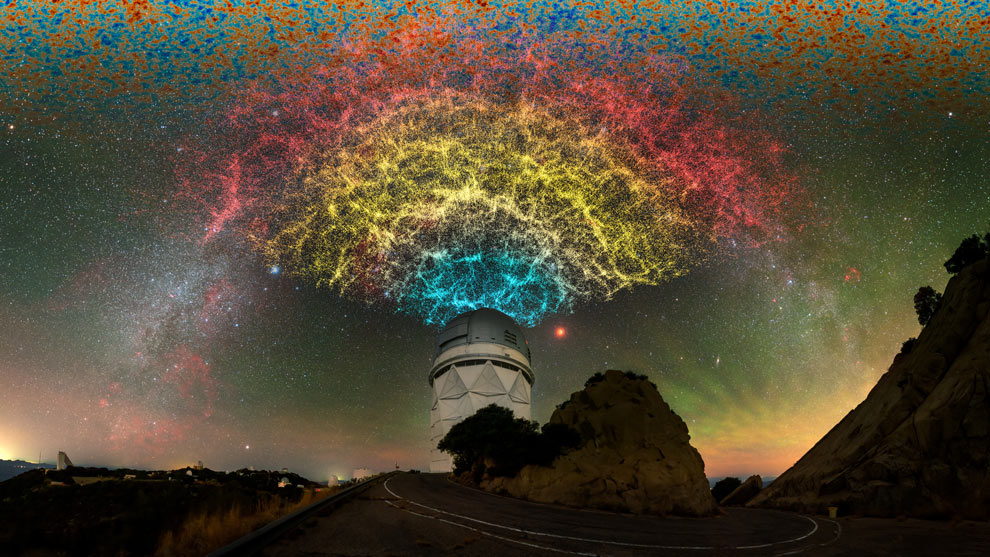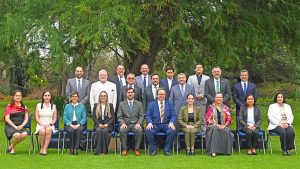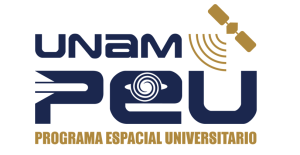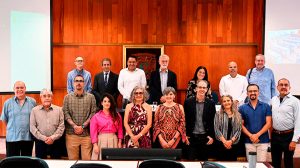DESI Reveals Uneven Expansion of the Universe
The Dark Energy Spectroscopic Instrument (DESI)—a global project involving nearly 1,000 scientists from more than 70 institutions, including several researchers from UNAM—has revealed how the universe has expanded over the past 11 billion years.
“DESI’s findings confirm that the universe’s expansion is accelerating—a discovery made more than two decades ago, which earned a Nobel Prize in Physics. However, the new data also show that this acceleration is not steady over time; its pace is uneven,” explained Vladimir Ávila Reese, researcher and Academic Secretary at UNAM’s Institute of Astronomy.
DESI is mapping approximately 14 million galaxies and quasars—extremely bright, distant galactic cores—to help scientists understand dark energy and its influence on the universe’s expansion.
Among the UNAM scientists contributing to the project are Axel de la Macorra Pettersson and Mariana Vargas Magaña from the Institute of Physics; Octavio Valenzuela Tijerino from the Institute of Astronomy; and Alejandro Avilés Cervantes from the Institute of Physical Sciences.










